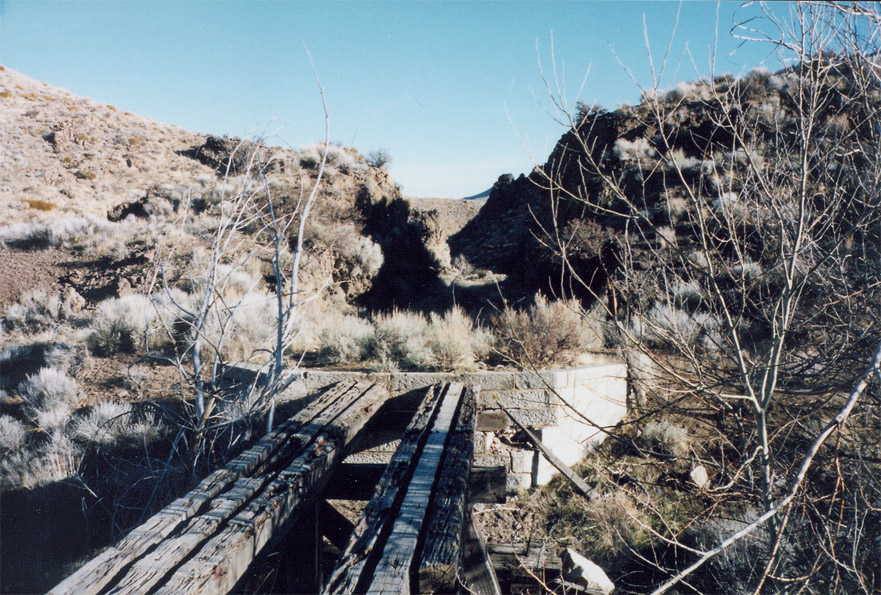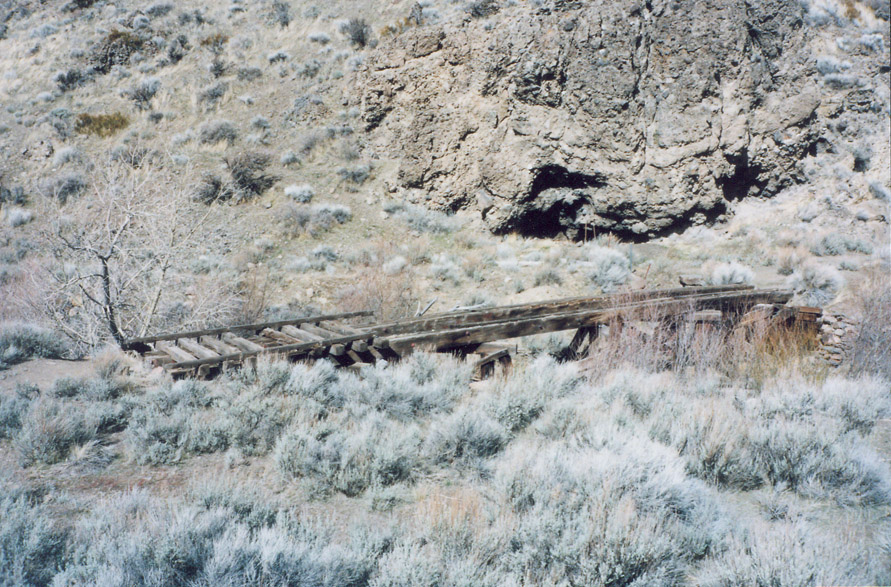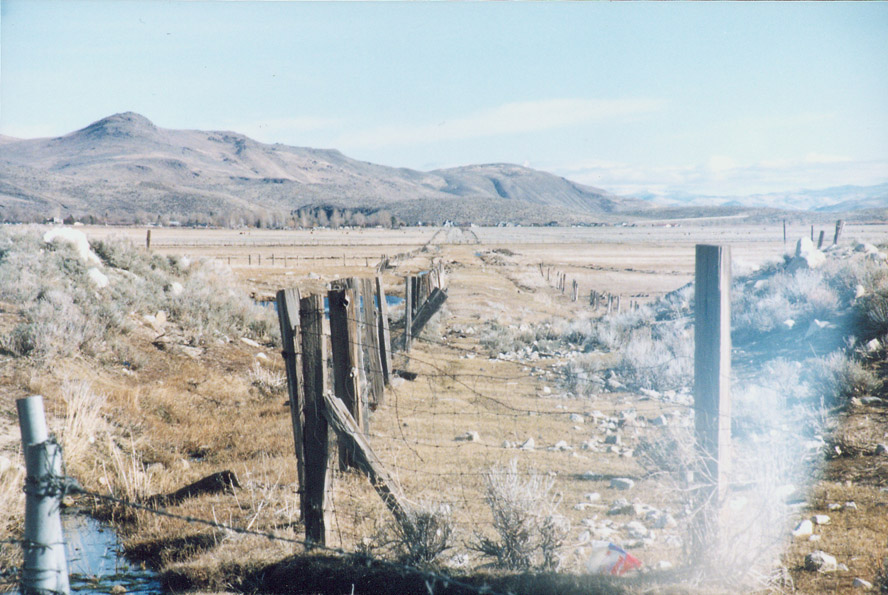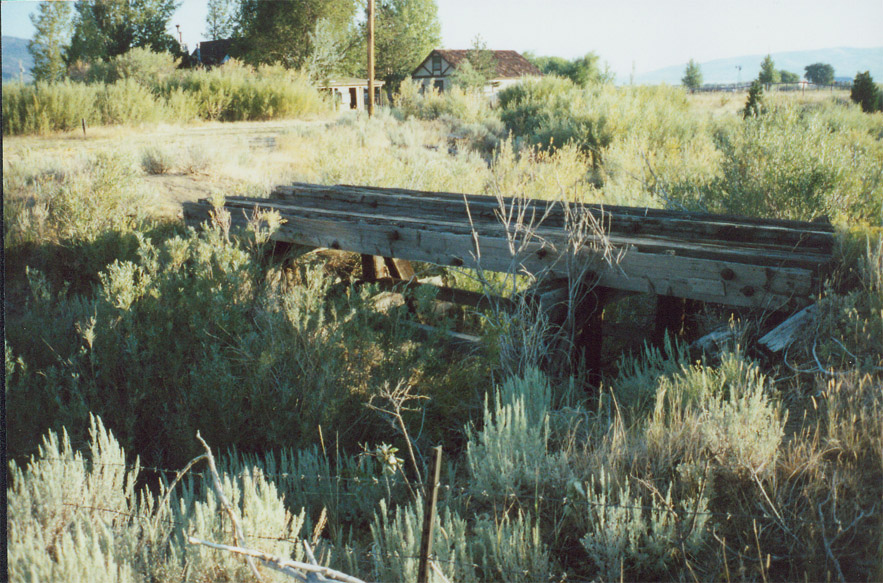Install the app
How to install the app on iOS
Follow along with the video below to see how to install our site as a web app on your home screen.
Note: This feature may not be available in some browsers.
You are using an out of date browser. It may not display this or other websites correctly.
You should upgrade or use an alternative browser.
You should upgrade or use an alternative browser.
Abandoned Railroad Lines
- Thread starter enginewhistle
- Start date
After I posted here last night, I thought of other rail lines that have been ripped up in my area. Another one from the Boston and Maine was the Chesire Railroad. This had two lines that connected with the B&M, former Fitchburg Railroad. The first junction is at South Ashburnham and ran up to Wichendon then on to Keene New Hampshire on its way to Brattleboro Vermont. The other came out of Gardener, MA on its way up to Wichendon where the two lines met. The main line was single track for most of the way, but ran through some fabulous country. It was abandoned over the years as the B&M struggled to stay alive. Today, most of this is a rail trail and probably will never come alive again.
Over the years, the Watertown branch has become another victim of the cutting torch and axe. This was a mostly freight line that ran south of the B&M Fitchburg Div. from Fresh Pond, Cambridge MA to Waltham, MA where it connected up with the same line up there. This was quite an active freight line up until the more recent times. It was bisected in the 1970s then after Guilford took over in the 1980s, the remaining ends were ripped up after discouraging business on the lines. This too would be another perfect commuter line as it runs right down the middle of Watertown, another suburb of Boston and Cambridge. Today the remains are rusting away, overgrown, or have been turned into bike paths. The yuppies and NIMBYs don't want the trains and the MBTA won't push the issue.
More recently, a small loop line from Malden to Lynn has been abandoned. It connected to the B&M at Malden and to the former Eastern RR in Lynn, making a complete loop in and out of Boston. This is the Saugus branch of the B&M. This line saw a lot of local freights from Lynn to Malden as it served the various mills. It was single track, but had a lot of long passenger sidings in its short distance, making it look like it was double tracked. During its life, there was also a good amount of commuter traffic as well. Today, the NIMBYs are pushing for a rail trail and the line is trashed. There was talk at one time to return it to service using light rail, but that got trashed as well. Hopefully, as gas prices start rising again the attitudes will change and these shorter urban ring lines can be returned as commuter lines. Recently, the MBTA (our state-run transit agency) is working on implementing DMU service on a short branch in South Boston that will utilize trains similar to the BR642 Desiro. These would be ideal for such branches as the Saugus, Watertown, and other formerly active, but now closed branches.
Over the years, the Watertown branch has become another victim of the cutting torch and axe. This was a mostly freight line that ran south of the B&M Fitchburg Div. from Fresh Pond, Cambridge MA to Waltham, MA where it connected up with the same line up there. This was quite an active freight line up until the more recent times. It was bisected in the 1970s then after Guilford took over in the 1980s, the remaining ends were ripped up after discouraging business on the lines. This too would be another perfect commuter line as it runs right down the middle of Watertown, another suburb of Boston and Cambridge. Today the remains are rusting away, overgrown, or have been turned into bike paths. The yuppies and NIMBYs don't want the trains and the MBTA won't push the issue.
More recently, a small loop line from Malden to Lynn has been abandoned. It connected to the B&M at Malden and to the former Eastern RR in Lynn, making a complete loop in and out of Boston. This is the Saugus branch of the B&M. This line saw a lot of local freights from Lynn to Malden as it served the various mills. It was single track, but had a lot of long passenger sidings in its short distance, making it look like it was double tracked. During its life, there was also a good amount of commuter traffic as well. Today, the NIMBYs are pushing for a rail trail and the line is trashed. There was talk at one time to return it to service using light rail, but that got trashed as well. Hopefully, as gas prices start rising again the attitudes will change and these shorter urban ring lines can be returned as commuter lines. Recently, the MBTA (our state-run transit agency) is working on implementing DMU service on a short branch in South Boston that will utilize trains similar to the BR642 Desiro. These would be ideal for such branches as the Saugus, Watertown, and other formerly active, but now closed branches.
Blutorse4792
Now T:ANE I can get into
Do "Rails To Trails" count?
Here's where the North Shore Line went under the C&NW out to Mundelein.

Wire slats are still visible under the bridge.

These ties have been sitting in the dirt for 50 years.

The catenary "bridges" were cut in half and are still being used as powerlines.

Here's where the North Shore Line went under the C&NW out to Mundelein.

Wire slats are still visible under the bridge.

These ties have been sitting in the dirt for 50 years.

The catenary "bridges" were cut in half and are still being used as powerlines.

Love the rails to trails idea, California has a bunch, Old Westside lumber being a favorite. On a side note, does anybody know how long and wide the Arcata & Mad Rivers wharf was. I had read that it was over two miles long to reach deep water, Humboldt Bay being almost a marsh. Wondering if the whole thing was a wharf or reached by a trestle?
Last edited:
There was a BN line that once ran from Billings to Shepherd, MT. Old topographic maps show its route, and much of the right-of-way still exists. I've always wondered what it was used for, and how long it's been torn up.
But speaking of the Homestake Pass line, here's a shot I took of the Skones Viaduct just east of Butte. This is from 1999:
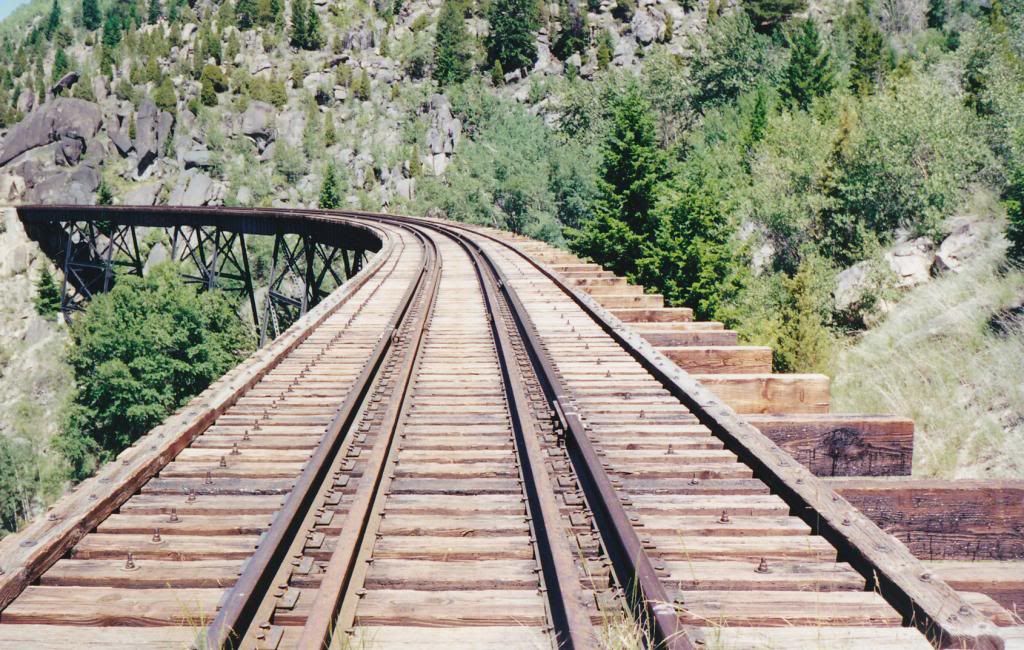
But speaking of the Homestake Pass line, here's a shot I took of the Skones Viaduct just east of Butte. This is from 1999:

Over by where I live in Washington state, we have alot of Rails-to-trails. One that everyone knows (here anyways) is the Orting Trail, which used to be a Northern Pacific main line to some coal fields in the cascade mountains. The spur still connects into the BNSF in Puyallup and goes to a factory, after which the trail takes over. I plan on going there over the summer when the weather is nicer so I will take some pictures
In my country there are no official rails-to-trails projects. But on many dismantled railway lines the locals themselves have made a dirt road which they even periodically maintain. They are used either because it's more straight, either not to be caught by police when you've had a bit too much or for touristic purposes. The parts not used as a road simply start turning into a forest.
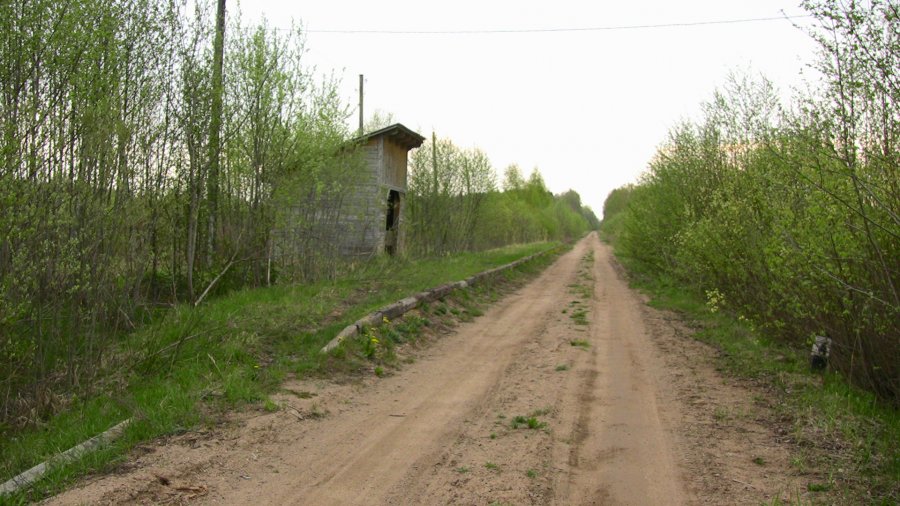
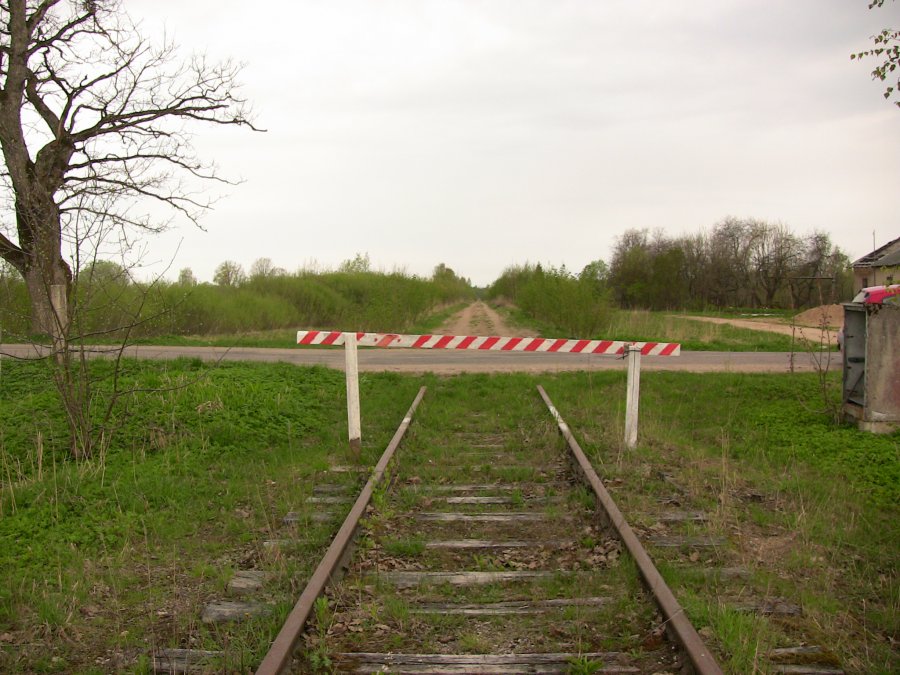
Ērgļi - Rīga is one of the lines now used by motorists and which is proposed to be turned into an actual cycleway since it will never be rebuilt as it was never completed in the first place (Blame it on WWII). Strangely, although in it's last years it saw just one train per day which was a railbus, that is the abandoned railway that springs to everybody's mind over here. It's not the most recent nor the most popular line closed.
I dread to think what happened to all the people that used the line on holidays. Because while the everyday usage could be fit into a couple of buses, I remember using the train in one of it's last years just before the holidays - the 3 car DMU was absolutely full which means some 700 people were on board. That amount can't be fit into a bus.
Ērgļi - Rīga is one of the lines now used by motorists and which is proposed to be turned into an actual cycleway since it will never be rebuilt as it was never completed in the first place (Blame it on WWII). Strangely, although in it's last years it saw just one train per day which was a railbus, that is the abandoned railway that springs to everybody's mind over here. It's not the most recent nor the most popular line closed.
I dread to think what happened to all the people that used the line on holidays. Because while the everyday usage could be fit into a couple of buses, I remember using the train in one of it's last years just before the holidays - the 3 car DMU was absolutely full which means some 700 people were on board. That amount can't be fit into a bus.
amigacooke
Well-known member
There really are lots of lines through out the US. In the eastern US, the famous railroads such as the Lehigh Valley, Reading, Central Railroad of New Jersey, New York Central, and Pennsylvania, and Erie Lackawanna, lost many thousands of miles of tracks after their merger into Conrail. The whole western portion of the Lehigh Valley, for example disappeared a bit above Sayre PA. The EL disappeared west of Marion OH, and long portions of the NYC were ripped up in various parts across New York State. The smaller Lehigh and Hudson River, and Lehigh and New England totally disappeared completely, with the LNE gone long before Conrail. After Guilford purchased the Delaware and Hudson, they immediately abandoned the line from Binghamton to Scranton. They embargoed the line immediately the did their usual of letting things rot. Today the southern portion is in operation by the Delaware and Lackawanna short line, while the more famous upper end is now a rail trail with no hope of being restored.
When travelling out in Montana in July 2012, I saw the MILW Pacific Extension. We picked up the route in Forsythe MT and followed the line out to Roundout, MT. It was sad to see bridges, water columns, order hoops, and other line side artifacts still in place as though the line was mothballed. At this point I don't think this line would ever be reactivated. Last year on our trip to outside Tucumcari, NM I saw the old Rock Island line. Bridges are still in place, and other signs of the line are still there. Sadly, this great railroad and route is no longer. Farther south in Texas, were signs of the KATY. These were granger lines, but their great KATY depots were still there with lots of grain elevators nearby. On the same trip we headed up to Nebraska and then into South Dakota where we paralleled the old Cowboy line of the CNW. That line is now a trail, but the route has been mothballed hopefully to become a rail corridor again.
John
When travelling out in Montana in July 2012, I saw the MILW Pacific Extension. We picked up the route in Forsythe MT and followed the line out to Roundout, MT. It was sad to see bridges, water columns, order hoops, and other line side artifacts still in place as though the line was mothballed. At this point I don't think this line would ever be reactivated. Last year on our trip to outside Tucumcari, NM I saw the old Rock Island line. Bridges are still in place, and other signs of the line are still there. Sadly, this great railroad and route is no longer. Farther south in Texas, were signs of the KATY. These were granger lines, but their great KATY depots were still there with lots of grain elevators nearby. On the same trip we headed up to Nebraska and then into South Dakota where we paralleled the old Cowboy line of the CNW. That line is now a trail, but the route has been mothballed hopefully to become a rail corridor again.
John
Dr. Beeching is infamous for his 1963 governmental report 'the re-shaping of Britain's railways' - many a branch line once serving rural communities up and down the land were closed down following his recommendations to streamline the rail network across the UK. One has to remember that all railway branch lines closed before, during and after his actions were important feeder lines for the main line routes such as the East-Coast Main line running between London and Edinburgh for example.
The former March- Chatteris -St. Ives branch line was a victim of his policies, and thus this East Anglian route was closed in 1963, and yet the Wisbech - March branch line somehow survived fully intact until 1968 passenger closure and afterwards hung on with minimal freight traffic until 2000. It was simple economics and low passenger numbers that in the end finally killed off the former March - Wisbech - King's Lynn through route (not a Beeching cut as some people have wrongly assumed) as his 1963 report recommended this line was to stay fully open. However, the Wisbech line is still in place as it was never closed fully in 1968 - and is currently now attracting wide interest from the towns of both March and Wisbech, Wisbech Town Council, Fenland District Council, Cambridgeshire County Council, Network Rail and the Government Ministry of Transport as a feasible new passenger service linking my home town to Cambridge (the capital of this fine county).
The former March- Chatteris -St. Ives branch line was a victim of his policies, and thus this East Anglian route was closed in 1963, and yet the Wisbech - March branch line somehow survived fully intact until 1968 passenger closure and afterwards hung on with minimal freight traffic until 2000. It was simple economics and low passenger numbers that in the end finally killed off the former March - Wisbech - King's Lynn through route (not a Beeching cut as some people have wrongly assumed) as his 1963 report recommended this line was to stay fully open. However, the Wisbech line is still in place as it was never closed fully in 1968 - and is currently now attracting wide interest from the towns of both March and Wisbech, Wisbech Town Council, Fenland District Council, Cambridgeshire County Council, Network Rail and the Government Ministry of Transport as a feasible new passenger service linking my home town to Cambridge (the capital of this fine county).
Last edited:
Dr. Beeching is infamous for his 1963 governmental report 'the re-shaping of Britain's railways' - many a branch line once serving rural communities up and down the land were closed down following his recommendations to streamline the rail network across the UK. One has to remember that all railway branch lines closed before, during and after his actions were important feeder lines for the main line routes such as the East-Coast Main line running between London and Edinburgh for example.
The former March- Chatteris -St. Ives branch line was a victim of his policies, and thus this East Anglian route was closed in 1963, and yet the Wisbech - March branch line somehow survived fully intact until 1968 passenger closure and afterwards hung on with minimal freight traffic until 2000. It was simple economics and low passenger numbers that in the end finally killed off the former March - Wisbech - King's Lynn through route (not a Beeching cut as some people have wrongly assumed) as his 1963 report recommended this line was to stay fully open. However, the Wisbech line is still in place as it was never closed fully in 1968 - and is currently now attracting wide interest from the towns of both March and Wisbech, Wisbech Town Council, Fenland District Council, Cambridgeshire County Council, Network Rail and the Government Ministry of Transport as a feasible new passenger service linking my home town to Cambridge (the capital of this fine county).
As you said here the cutting of the feeder lines cut back the traffic on the major trunks. This also has a detrimental effect on the whole system. Sure Dr. Beeching thought it was smart to keep this particular line, however, the connecting line to it cut back the local traffic that would have kept the passenger service fully active. We also have to take into consideration too that the whole rail infrastructure was considered a lot differently than it is today. With higher populations seeking less expensive places to live today, these outlying areas have become the new suburbs of the bigger cities. With ever increasing numbers of people on roads, this causes the regions to start looking closer at their rail infrastructure.
In countries such as the United Kingdom, and other places in Europe, where their area covered is about the size of our states or few states, it can be reasonable for governments to assist or own the local rail authorities. Here in the US for example, our state owns the ROW within the borders including inactive lines. This is done through the Massachusetts Bay Transit Authority, or better known as the MBTA or "T". Like your Network Rail, the MBTA owns the track and the tenant freight railroads pay them to operate on the rails. The T also provides maintenance on the commuter portions of the lines while the freight companies perform maintenance on the outlying areas. Other states have similar plans in place such as CDOT and New York, which both operate the MetroNorth Commuter Rail. MetroNorth is also responsible for the Long Island Railroad and the subway operations (underground and over ground) in New York City.
Doing this at a national level would be next to impossible. We also have a political mindset dead against rail infrastructure who have it in them to kill any national service, and also local service, right off. Our national passenger rail system affectionately called Amtrak, has been struggling constantly for decades as its budget is slashed and trashed, but we also have to keep in mind that we also have great stretches of land in the middle of our country that have absolutely no population, or very little population at all. This would be a major financial burden for these states as well as for the government to support, and probably part of the reason for this sentiment. Thus, we see this kind of operation in and around the more populated areas such as Chicago, St, Louis, the Northeast Corridor, and the West Coast where the populations are the highest.
^^^
Well.. as man power and infrastructure becomes more expensive, it's only logical that we see a shift. It becomes too expensive to run trains in low populated areas as that can be done much cheaper by buses or cars. Trains are left with high-demand services in or between highly populated areas, and railways get abandoned in other areas. But population growth and denisification can lead to the need of renewing abandoned railways. So I conclude that it's logical to close railways if there are no users (and the reason for that is NOT bad service quality or speed), but it would be wrong to sell the land. The best would be to make a cyclepath in it's place so the railway can easily be reinstated if needed.
In my country there are still many services stopping literally in the middle of a forest. It means the trains get slowed down, and the many passengers from the bigger cities choose faster alternatives - express buses or cars. It should be the other way around - big masses from big cities use fast trains while few people from villages use the bus or cars.
Well.. as man power and infrastructure becomes more expensive, it's only logical that we see a shift. It becomes too expensive to run trains in low populated areas as that can be done much cheaper by buses or cars. Trains are left with high-demand services in or between highly populated areas, and railways get abandoned in other areas. But population growth and denisification can lead to the need of renewing abandoned railways. So I conclude that it's logical to close railways if there are no users (and the reason for that is NOT bad service quality or speed), but it would be wrong to sell the land. The best would be to make a cyclepath in it's place so the railway can easily be reinstated if needed.
In my country there are still many services stopping literally in the middle of a forest. It means the trains get slowed down, and the many passengers from the bigger cities choose faster alternatives - express buses or cars. It should be the other way around - big masses from big cities use fast trains while few people from villages use the bus or cars.
In NC there is the old Durham & Southern line from Apex to Dunn NC that hauled mostly gravel and tobacco. There is also a spur from Dunn to Erwin NC that hauled Cotton, and is now a rail-trail. The section from Apex to Durham is still in use by CSX.
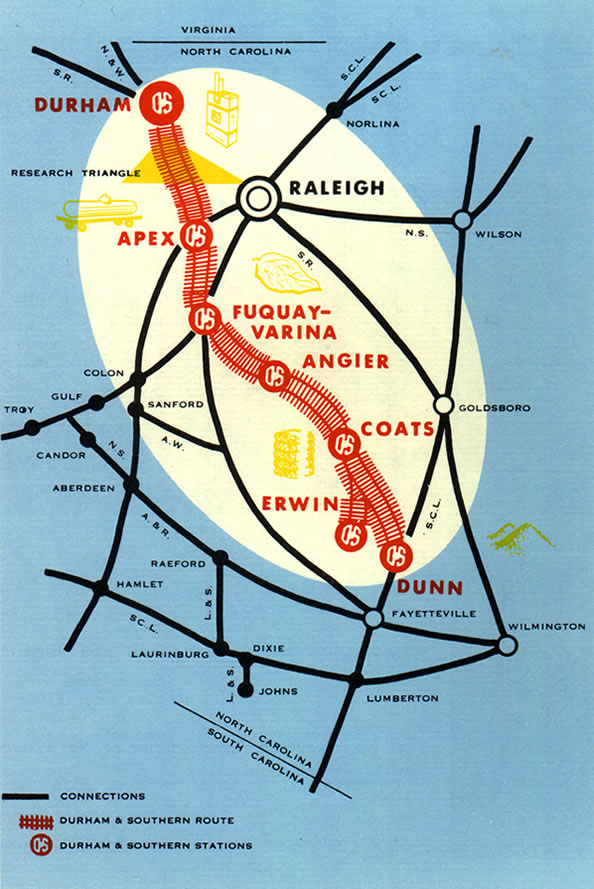
(image from durhamsouthern.com)

(image from durhamsouthern.com)
1959 saw the biggest closure ever of a major railway system in the United Kingdom -
http://www.peterboroughtoday.co.uk/news/local/the-end-of-a-railway-era-1-126054
This route system serving much of East Anglia has since left parts of the county isolated with poor access to proper public transport.
My own town was served until 1959 by two seperate railway branch lines - the M&GN branch from Peterborough to King's Lynn via Wisbech North Station and Sutton Bridge; and the Great Eastern Railway from March to King's Lynn via Wisbech East Station and Magdalen Road Jnc. All that we have now is just an 8 mile stub between March and Wisbech of which was until 1968 a complete 17 mile through branch line route on to King's Lynn.
http://d20u174ifpwkls.cloudfront.net/wisbech/files/2013/03/51190370178.jpg
http://d20u174ifpwkls.cloudfront.net/wisbech/files/2013/03/51190370179.jpg
http://www.peterboroughtoday.co.uk/news/local/the-end-of-a-railway-era-1-126054
This route system serving much of East Anglia has since left parts of the county isolated with poor access to proper public transport.
My own town was served until 1959 by two seperate railway branch lines - the M&GN branch from Peterborough to King's Lynn via Wisbech North Station and Sutton Bridge; and the Great Eastern Railway from March to King's Lynn via Wisbech East Station and Magdalen Road Jnc. All that we have now is just an 8 mile stub between March and Wisbech of which was until 1968 a complete 17 mile through branch line route on to King's Lynn.
http://d20u174ifpwkls.cloudfront.net/wisbech/files/2013/03/51190370178.jpg
http://d20u174ifpwkls.cloudfront.net/wisbech/files/2013/03/51190370179.jpg
Last edited:
^^^
Well.. as man power and infrastructure becomes more expensive, it's only logical that we see a shift. It becomes too expensive to run trains in low populated areas as that can be done much cheaper by buses or cars. Trains are left with high-demand services in or between highly populated areas, and railways get abandoned in other areas. But population growth and denisification can lead to the need of renewing abandoned railways. So I conclude that it's logical to close railways if there are no users (and the reason for that is NOT bad service quality or speed), but it would be wrong to sell the land. The best would be to make a cyclepath in it's place so the railway can easily be reinstated if needed.
In my country there are still many services stopping literally in the middle of a forest. It means the trains get slowed down, and the many passengers from the bigger cities choose faster alternatives - express buses or cars. It should be the other way around - big masses from big cities use fast trains while few people from villages use the bus or cars.
This is surely very understandable...
With trains stopping in the middle of nowhere, no wonder people are opting for better service. If they have to swap to a bus or car, they may as well as do that right off instead of needing to switch in the middle of their journey. Commuting is a bit different where getting around a big city is a lot easier on public transportation.
Turning disused rail lines into bike paths is called rails-to-trails, and has been used to save some ROW here in my region. This unfortunately usually means a line will become a permanent bike trail because the locals don't want to see the trains, ever. This very vocal and selfish population that live next to the old ROW will come out en mass, even recruit others from surrounding areas, just to complain about the restoration of a rail line. These are un-affectionately called NIMBYS, or Not In My Back Yards folk. This is the same crowd who move into their new houses in sterile developments, built next to farms and industries, and then complain about the noise and smell. The interesting thing is they think nothing of sitting for hours in their expensive gas-guzzling SUVs while commuting to work, but are dead set against railroad commuting. In some cases, where a rail line has been left dormant, they will make use of the old ROW with gardens and driveways but end up in shock when a line is restored. In this case I blame the real estate brokers for telling them the tracks are disused and will never be used if ask.
John
Those stops are mainly for the people living near the station which sometimes is just 3 or 4 families. They are not used by people who live further that walking distance from the stops. As cruel as that sounds, I would close those stops and make the people use the bus (or even gift the families a car) so the train could achieve higher speeds. The company would lose a couple passengers per forest stop but gain dozens from the cities up the line who will find the faster travel more appealing. And they pay more because they travel the longer distance.This is surely very understandable...
With trains stopping in the middle of nowhere, no wonder people are opting for better service. If they have to swap to a bus or car, they may as well as do that right off instead of needing to switch in the middle of their journey. Commuting is a bit different where getting around a big city is a lot easier on public transportation.
Many of those forest stops have only ever been technical ones - a passing place for the trains and a house for the signalman and family. And now with the lines being double tracked (no longer a passing place) and with signaling being digitally controlled from the capital there is no longer a need for such stops.
For once I'm glad that my country had a bit of totalitarian past - stuff got built without askingThese are un-affectionately called NIMBYS, or Not In My Back Yards folk.
Sadly no one has even tried to build a new railway in the democratic nowadays. Most of abandoned line ROW is being preserved though. Only one line's ROW got sold - the route will be turned into HSR, but the old alignment was too curvy for that.
Abandoned before completion

Out of interest, which particular route is this? Presumably not Riga to Ergli which was operational before closure.
Similar threads
- Replies
- 19
- Views
- 6K
- Replies
- 45
- Views
- 10K
- Replies
- 85
- Views
- 17K
- Replies
- 39
- Views
- 16K





